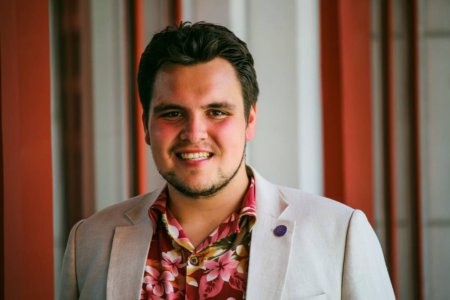
If you’re from Europe but always wanted to study in Taiwan — or Asia — here’s some good news. The Taiwanese Ministry of Foreign Affairs (MOFA) is set to further academic collaboration with European countries via the Taiwan-Europe Linking Scholarship programme, which will create more opportunities for European students to study in Taiwan.
Universities in Taiwan will soon receive subsidies to encourage cooperation with European institutions, seeking to foster an active culture of exchange. The programme has kicked off in the Czech Republic, where seven Taiwanese universities and 14 Czech universities will provide 50 scholarships for Czech students. Besides that, 18 Taiwanese universities will also work with 42 British universities to offer 100 scholarships for UK students.
Speaking on the subsidies, deputy director-general of the European Department of the Ministry of Foreign Affairs Chen Yongshao said, “Each school can use it in a coordinated manner and decide to subsidise plane tickets, lodging or other expenses, or to support the expenses of the school for handling the project. In principle, each school must provide scholarships of at least 15,000 New Taiwan dollars per month for recipients.”
 An aerial view shows the Thermal Valley in Taipei during the Lunar New Year on Feb. 18, 2021.
An aerial view shows the Thermal Valley in Taipei during the Lunar New Year on Feb. 18, 2021.
Language a priority for study in Taiwan
At press time, MOFA and the Taiwanese Ministry of Education (MOE) have recommended 20 Chinese language learning centres at universities to enlist in this programme. However, all universities — including those without language learning centres — are eligible to participate.
These scholarships are in tandem with the country’s efforts to promote Mandarin and Taiwan studies on the global stage. Taiwan has made several agreements to this effect, including signing MOUs with the UK, Hungary, and the US in the final quarter of 2020. Its journey into Europe is only just beginning.
In the US, MOFA also granted funding to UCLA Asia Pacific Centre Funding to establish programmes on Taiwan studies and Mandarin learning. Additionally, it has started a three-year initiative that will bring new funding to Harvard University’s Fairbank Centre. Since US scholars typically focus on Japan or Korea when thinking of East Asian destinations, these initiatives are hoped to increase foreign appetite to study in Taiwan.
Taiwan is increasing its international efforts since the closing down of three Confucious Institutes in the US in 2021. This creates a need for Mandarin language learning resources — a gap that Taiwan hopes to fill. “The teaching skill in Taiwan has a very good reputation,” said Chiapei Chou, executive vice president at the National Taiwan University. “If we send instructors overseas, we will fit into the curriculum of each university.”










